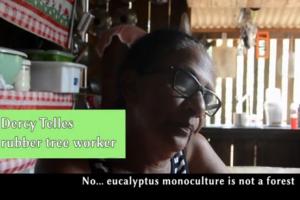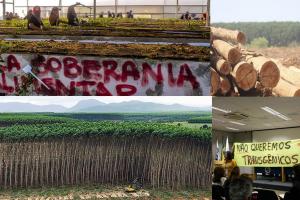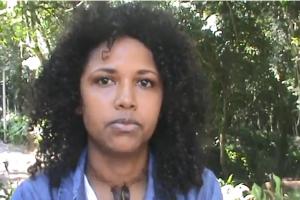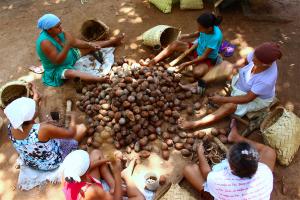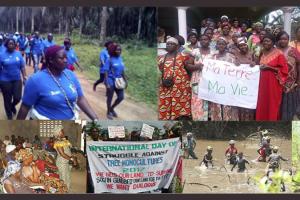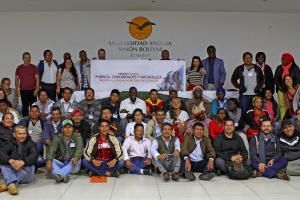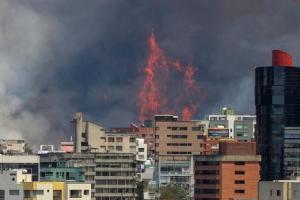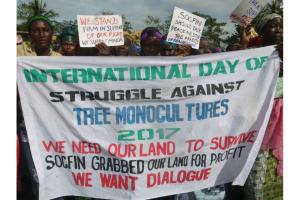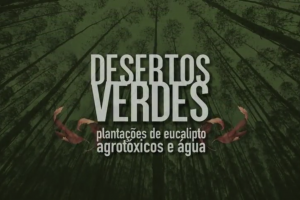Struggles Against Tree Monocultures
Corporate profit drives land grabs to install industrial tree monocultures. Where industrial plantations take root, communities' territories and lives are violently invaded, their forests destroyed and their water polluted. When communities resist, companies tend to respond with aggression. Despite this extreme violence, communities around the world are resisting, organizing and joining forces to defend their territories. Every September 21 the International Day of Struggle against Monoculture Tree Plantations is celebrated.
A threat spreads across our territories. Under the misleading name of “reforestation”, which sounds quite nice, huge plantations of exotic – and even genetically engineered – trees have been set up in Brazil by transnational corporations. True “green deserts” lead to the extinction of countless species of our fauna and flora and changed the fundamental characteristics of our incredible natural and cultural landscapes, with clear social and environmental impacts, threatening the traditional ways of life of peoples and communities.
As the first country in Latin America to deregulate a genetically engineered tree (a eucalyptus species) and with a favorable political environment, Brazil has become a reference for transnational companies to carry out their projects. Precisely for this reason, the World Congress of IUFRO – International Union of Forest Research Organizations – will be held in Brazil, between September 29th and October 5th, in Curitiba, Paraná. We reject this corporate event, where false solutions and new ways to increase corporate profits will be discussed, at the expense of the commons.
A threat spreads across our territories. Under the misleading name of "reforestation", which sounds quite nice, huge exotic tree plantations have been set up in Brazil by transnational corporations. We invite you to sign the following letter with us.
The construction of the Suzano Pulp and Paper mill—along with nearby highways, the constant transport of wood, and the massive influx of workers—has brought a lot of devastation to communities. This is the testimony of an activist who is fighting for the territory.
The expansion of oil palm and logging in Wimbí is a fact. And in both cases, the protagonist is the same: the land trafficker who allowed the palm company, Energy & Palma, to enter. This new cycle of dispossession threatens the culture and survival of the community.
Despite the many profound damages that industries cause in the world's forests, they also cause something else to emerge: the strong and diverse resistance movements of affected communities defending their territories, livelihoods, cultures and even their existence. The struggle continues! (Available in Swahili).
In Ecuador, the expansion of industrial oil palm plantations is the main cause of deforestation. A meeting to exchange knowledge, the first of its kind in Ecuador, brought together leaders from oil palm-affected provinces from the three regions of the country.
Since the native vegetation that surrounded Quito was destroyed to make way for eucalyptus and pine plantations, the forest fires that the city faces year after year have been intensifying.
Documentary by Centro de Estudos e Pesquisas para o Desenvolvimento do Extremo Sul da Bahia - CEPEDES, Brazil.
